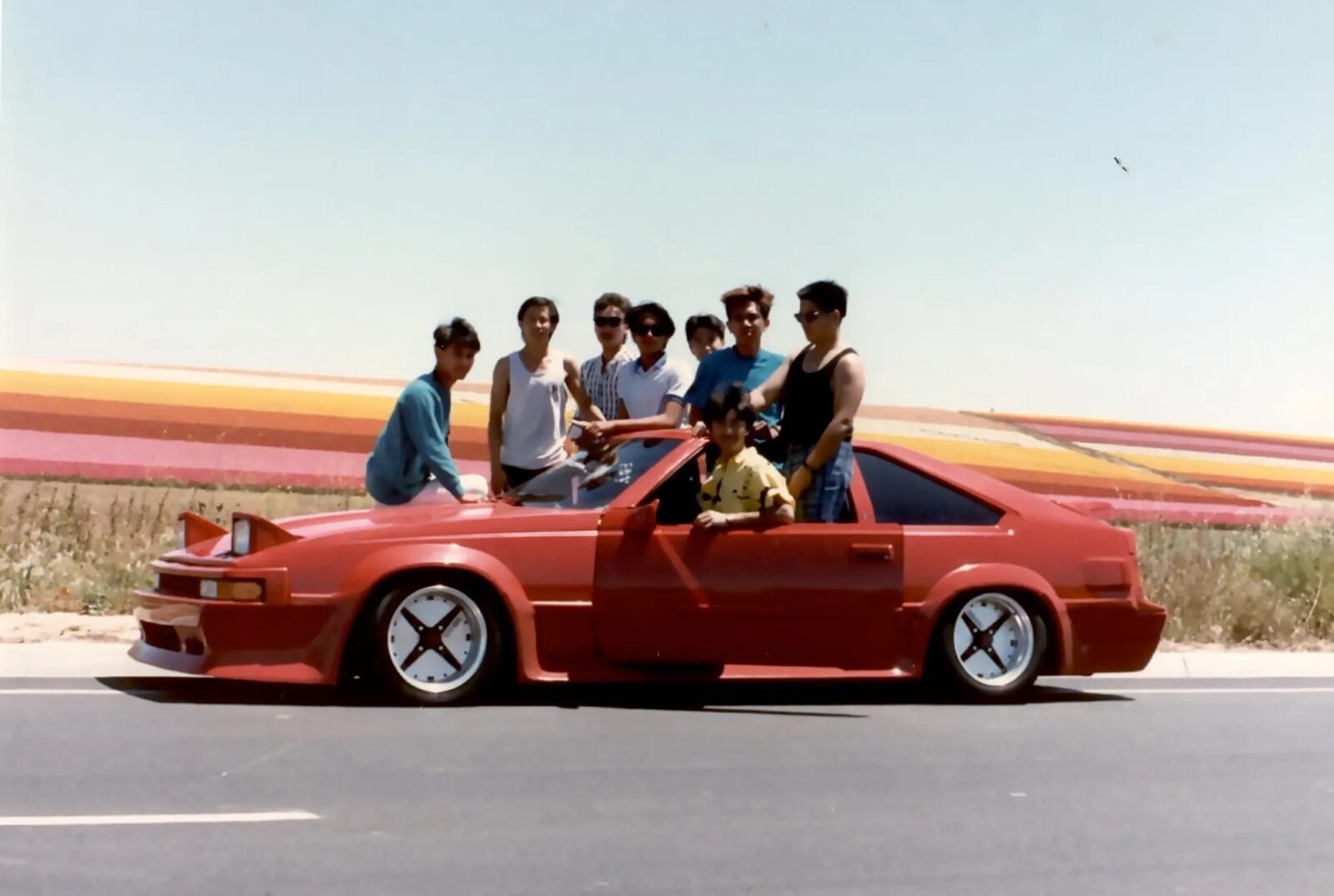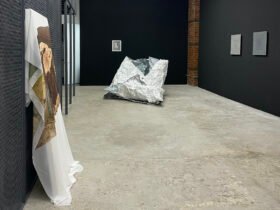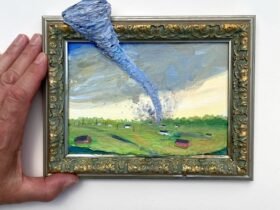Elizabeth Ai’s six-year journey to create New wave (2024), a documentary about the experiences of post-war resettlement of Vietnamese Americans in the 1980s, was halted in March 2020 due to the COVID-19 pandemic. She shifted her focus from directing to archiving, browsing through family photos, but encountered the limitations of Vietnamese-American archives. She opened her research to the internet and thus created a Instagram page and invite others to share family photos and videos from their personal collections. In the resulting photos, aunts and uncles sport spiky permed hair and wear blazers with shoulder pads as they emphatically dance to ’80s New Wave disco, capturing the essence of this fleeting cultural moment.
For Ai and many other Vietnamese Americans who grew up in the 1980s, New wave was the soundtrack of their youth. But if the connection between Euro synth-pop bands like Depeche Mode, Talking Heads and Duran Duran and Vietnamese-American refugees in Orange County seems like a stretch, you’re not alone. Elizabeth called relatives to investigate those connections and discovered that they were came across these synthpop records alongside Viet New Wave covers/cassette compilations in record stores at Phước Lộc Thọ, or Asian Garden Mall, in Westminster, California. Many refugees had settled in Orange County due to its warm climate and proximity to Camp Pendleton, the first refugee camp opened for resettlement through Church sponsorship, leading to the creation of many such places where cultures intermingled.

The documentary and accompanying book, New Wave: Rebellion and Reinvention in the Vietnamese Diaspora (2024), rewrites the story of Vietnamese Americans after the war, leading up to the 50th anniversary of the Fall of Saigon. Western popular culture has historically depicted the Vietnamese people as victims (refugees from the South) or enemies (communists from the North), gangsters or model minorities, leaving little room for nuance in portraying the experiences of the more than 45 million people who were forced to flee their homelands. For Vietnamese-born refugees who came to the United States between the ages of five and twelve, or the so-called “1.5 generation,” music provided an escape from the binary between home and school, where they were pressured to to uphold Vietnamese traditions. at the same time assimilate into American culture.
New wavedesigned by Mỹ Linh Triệu Nguyễn from STUDIO LHOOQcaptures this hybrid identity by switching between a photo archive – with full spreads of family photos and striking designs for cassette tapes – and a collection of essays, including coming-of-age stories by Ai and other Vietnamese scholars who trace the movement’s progress through of the decades. The project highlights cultural icons such as Lynda Trang Đài, whose appearances in variety shows such as Paris at night (1983) led to international interest in New Wave style and music. Her ability to combine traditional Vietnamese music with the fresh, upbeat synths of Eurodisco captured the pinnacle of V-pop’s broad appeal to a multigenerational, bilingual audience.
“Our rebellion was not just a protest, but rather a symphony and a dance of liberation,” writes sociologist Thao Ha. “In those moments, we weren’t just shaping our culture; we were shaping a transformative world, a world where being Vietnamese-American was a celebration of resilience and individuality.” Accordingly, New wave also extends beyond its original function as a documentary project, including autobiographical details such as Ai reconnecting with her mother in a heartfelt but imperfect reunion during filming. Despite the odds, Of the New Wave a resounding presence in this generation’s resettlement story illustrates its key role in bridging cultural differences, dealing with generational trauma, and creating safe places to experience joy.


New Wave: Rebellion and Reinvention in the Vietnamese Diaspora (2024) written by Elizabeth Ai and published by Angel City Press, it is available for purchase online and through independent booksellers.













Leave a Reply